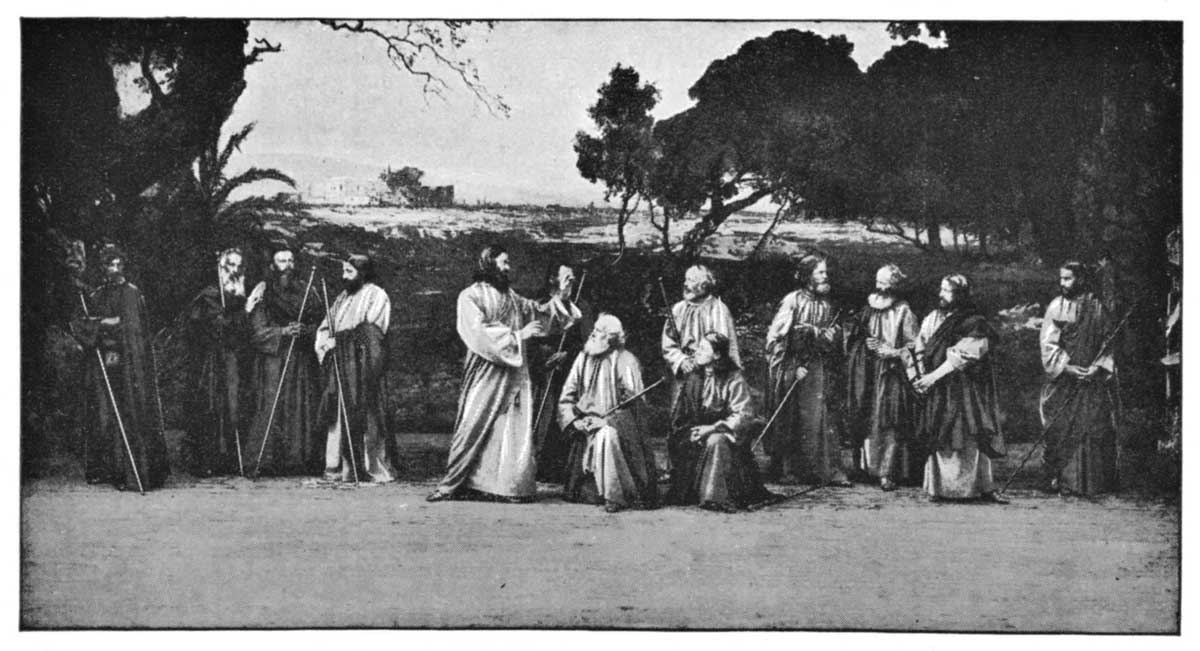Twice Liberated
A Personal Journey Through Feminism
by Frederica Mathewes-Green
When I joined the college newspaper as a shy freshman many years ago, the editor gave me my first assignment: “Find out what’s all this stuff about women’s lib.” I was baffled as to how to do that; reports of feminism (which was then uniformly called “women’s lib”) were just beginning to titillate the public, just beginning to show up in Johnny Carson jokes about “bra-burners.” Was it possible to dig up any local “libbers”? My editor had a suggestion: go to the Student Union and have them announce over the loudspeaker, “Anyone representing the women’s liberation movement, please come to the information desk.”
It is intriguing to picture what would happen if such a message were announced from that same desk today. But in September 1970, there was a slight pause before two women came steaming up, glowing with the zealot’s inner flame. Kathy and Rosa steered me into the lounge, where they opened to me the hidden knowledge of women’s oppression through the ages. As they expounded this mystic wisdom, I began to nod. I liked what I was hearing.
I was ready to believe in something. I had spurned my Roman Catholic upbringing a few years before, and spent the high school years strumming anti-war songs at a hip Unitarian church (our elfin pastor was fond of repunctuating St. John: “God is. Love!”) It was deep, of course, but somehow it wasn’t enough, sharing superior smiles with the elbow-patch crowd and sneering at Nixon. We were pledged to reject any conviction more precise than that people are grand and everyone should be nicer to each other. I was seventeen, and I was looking for deeper convictions.
So when my first campus byline appeared a week later, it was over a story that cautiously endorsed the “libbers,” and I continued my catechesis under Kathy and Rosa. The prototype version of women’s lib that they initiated me into was still searching for a focus. The movement understood itself as firmly underground, and was self-consciously counter-cultural, even deliberately crude (a favorite slogan was “Next time bite it off!”) Wearing suits with little bow ties and carrying briefcases was the farthest thing from our minds. We ridiculed men who wore suits.
The movement was a spontaneous, uncoordinated explosion of energy and anger without a clear plan and, in our case, amply fertilized by the pungent manure of ignorance. Childless, we talked about using communal baby farms to free women from the awful burden of caring for their own children. Sexual neophytes, we talked earnestly about the Myth of the Vaginal Orgasm. Naive girls’ dorm dwellers, we sought out the town’s lesbian bar, where we were invited to dance by very serious older women with arms like sides of beef. In my own body I evidenced the confused zeal of the time: I stopped shaving my legs but continued plucking my eyebrows.
However, in a phase of the movement’s life when it was strongly associated with the term man-haters, we generally got along well with men. Most of us remained enthusiastically heterosexual. We were in harmony with our brothers in the overall hippie counter-cultural agenda, and our enemies were not men, but straights (meaning, in those days, non-dopers), Young Republicans, Jesus Freaks, and the Establishment.
In my senior year a movement buddy stopped me in a hallway. She was ecstatic with the news: a woman had won a top executive job at AT&T, wasn’t it great? No, I said, bewildered. What do we want executive jobs for? It’s just co-optation, getting sucked into the establishment. The women’s movement is not about trying to get a bigger piece of the pie. We’re talking about a different kind of pie altogether.
Someone scheduled a debate for an empty classroom; I represented the counterculture side. We’re selling out, I said. We didn’t start this revolution to end up with our representatives wearing suits and gold jewelry and looking important on TV. Remember Joni Mitchell singing, “You could have been more than a name on the door on the 33d floor in the air”? Remember Harry Chapin singing about the executive father too busy to see his son, and the son saying, “I’m gonna be like you, Dad”? Didn’t we reject all that careerism and materialism as deadening to the soul? Why in the world would we want it now?
I don’t recall if I won the debate; my position certainly did not win the war. Feminism now is, as Naomi Wolf cogently demonstrates in her new book Fire with Fire, split between Victim Feminism (self-defeating poutiness and man-blaming) and Power Feminism, which she champions. Wolf cites three principles for Power Feminism: Retaliation, Money and Worldly Power, and Victory. If nothing else, it is refreshing to hear the underlying values of this philosophy described so baldly.
Frederica Mathewes-Green is a columnist for Beliefnet.com and a contributor to the Christian Millennial History Project multi-volume series. Her books include At the Corner of East and Now (Putnam), The Illumined Heart (Paraclete Press), and The Open Door: Entering the Sanctuary of Icons and Prayer (Paraclete Press). She lives in Linthicum, Maryland, with her husband Fr. Gregory, pastor of Holy Cross Orthodox Church. They have three children and three grandchildren.
subscription options
Order
Print/Online Subscription

Get six issues (one year) of Touchstone PLUS full online access including pdf downloads for only $39.95. That's only $3.34 per month!
Order
Online Only
Subscription

Get a one-year full-access subscription to the Touchstone online archives for only $19.95. That's only $1.66 per month!
bulk subscriptions
Order Touchstone subscriptions in bulk and save $10 per sub! Each subscription includes 6 issues of Touchstone plus full online access to touchstonemag.com—including archives, videos, and pdf downloads of recent issues for only $29.95 each! Great for churches or study groups.
Transactions will be processed on a secure server.
more on feminism from the online archives
more from the online archives
calling all readers
Please Donate
"There are magazines worth reading but few worth saving . . . Touchstone is just such a magazine."
—Alice von Hildebrand
"Here we do not concede one square millimeter of territory to falsehood, folly, contemporary sentimentality, or fashion. We speak the truth, and let God be our judge. . . . Touchstone is the one committedly Christian conservative journal."
—Anthony Esolen, Touchstone senior editor













